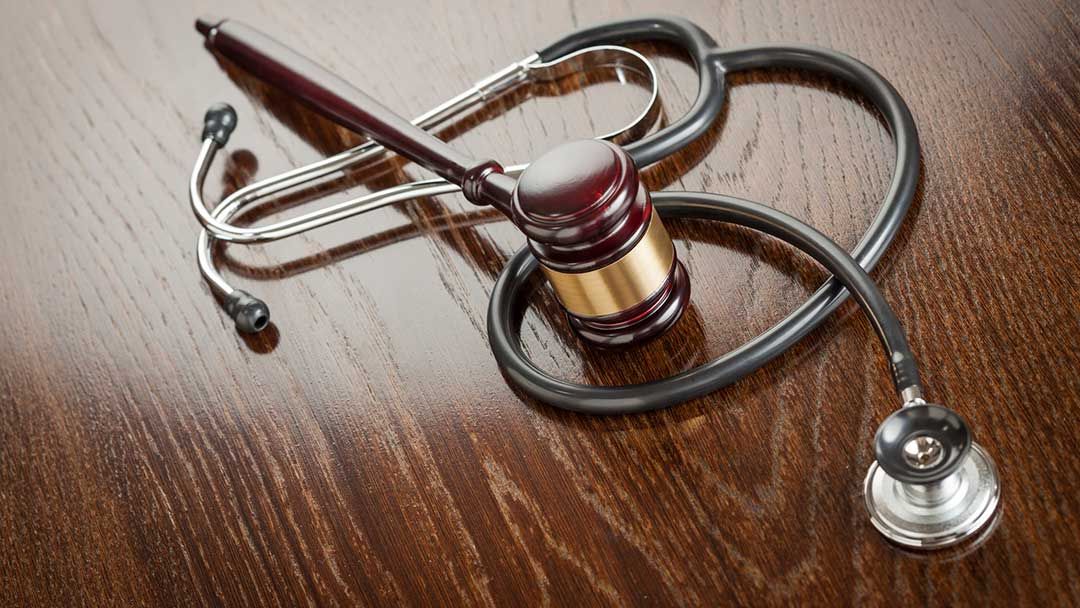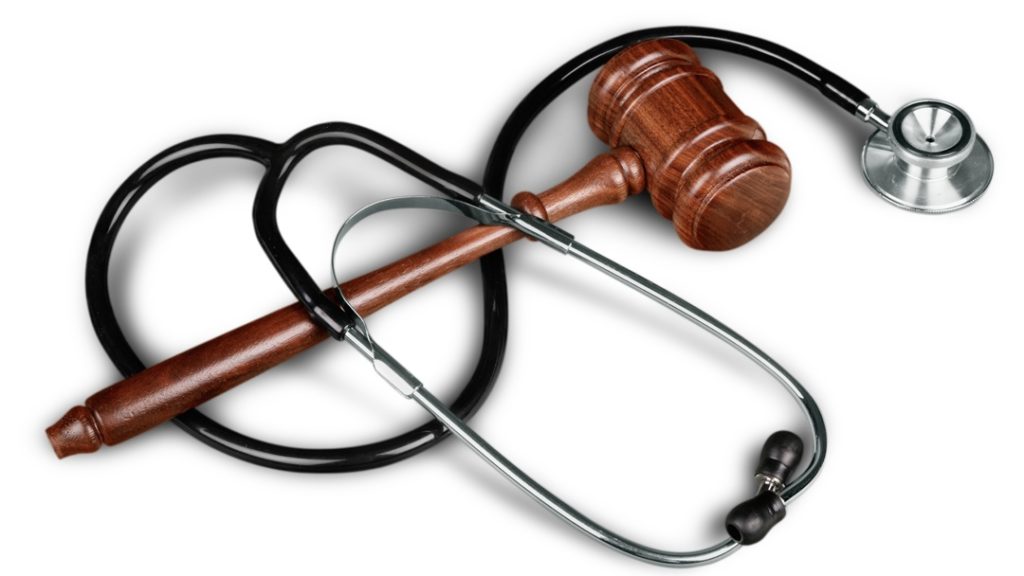
I’m a Victim of Medical Malpractice: What Can I Do?
I think I was a Victim of Medical Malpractice, What do I do?
Mistakes and missteps in medical care may take shape as diagnostic blunders, inaccurate treatment of a condition or disease, incompetence or carelessness in continuing health management, or neglectful attention in aftercare. When a patient suffers an injury due to an error on the part of a hospital, doctor, nurse, physical therapist, mental healthcare professional, assisted living facility, or other licensed healthcare providers, this negligence is classified as medical malpractice.
Just because you – the patient – are dissatisfied with the outcome of their treatment, however, it does not mean that medical malpractice has occurred. There are specific questions to be answered when establishing a medical malpractice claim. For instance, was there a professional medical relationship expectation that existed between you and the offending party(s) that was breached? Did the doctor or facility fail to provide appropriate and acceptable medical care to you? Is there sufficient evidence to support that malpractice was committed as a result of their neglect or gross incompetence? Is there any corroborating testimony or proof that will affirm in court that malpractice was committed and a substantial factor in causing your injuries?
Understanding Medical Malpractice: Definition and Types
Before you can identify if you’ve been a victim of medical malpractice, it’s crucial that you understand what it’s and the different types that exist. Medical malpractice occurs when a healthcare provider, be it doctors, nurses, or other professionals, deviates from the standard of care in their profession, leading to injury or harm. It’s a form of negligence, specifically termed medical negligence, and it can have serious consequences.
Medical malpractice can take several forms. It could be due to medical errors in diagnosis, treatment, aftercare, or health management. For instance, if a doctor misdiagnoses your condition and you receive improper treatment as a result, you could be a victim of medical malpractice. Similarly, if you suffer harm because of a mistake during surgery or because of incorrect medication, it’s also considered medical malpractice.
It’s also crucial to distinguish between medical malpractice and unfortunate outcomes. Not all medical mistakes amount to negligence. Sometimes, despite best efforts and following all protocols, treatments don’t have the desired effect. That doesn’t mean you’ve been a victim of medical malpractice.
Understanding medical malpractice is the first step in identifying if you’ve been a victim. If you suspect you’ve suffered due to medical negligence, don’t hesitate to take action. It’s your health, and you have the right to proper treatment. Remember, you’re not alone, and there are resources and professionals who can help you navigate this challenging situation.
Identifying the Signs: Have You Been a Victim of Medical Malpractice
You’ve learned about what medical malpractice is and its different types, and now it’s time to delve into some clear signs that could indicate you’ve been a victim. Identifying the signs: have you been a victim of medical malpractice? This question might be hovering in your mind. Let’s take a closer look.
Firstly, if your health hasn’t improved or has worsened following a medical procedure, you might be a victim of medical malpractice. This is especially true if your condition should have improved based on the treatment you received. Poor health results can indicate that something went wrong during your medical care.
Next, you may have experienced an unexpected or unexplained outcome. If your health care provider didn’t adequately inform you of the potential risks or outcomes, you may have a claim. You have a right to be informed about your health and treatments, and medical malpractice can occur when this right is violated.
In addition, if you suspect medical malpractice, you might also have noticed a lack of information or transparency from your healthcare provider. Victims often report feeling left in the dark about their condition or treatment, which can be a clear indicator of malpractice.
Finally, remember that patients are also victims when their concerns are dismissed by their healthcare provider. If you feel that your concerns aren’t being heard or taken seriously, it’s possible you’re a victim of medical malpractice.
In essence, being a victim of medical malpractice is more than just suspecting that something is wrong. It’s about identifying clear signs and knowing what you can do. So, if you’re a victim, don’t hesitate to claim your rights.
Navigating Your Rights: The Legal Perspective
While it’s crucial to understand the signs of medical malpractice, it’s equally important to know how you can navigate your rights from a legal perspective. If you suspect you’ve been a victim, it’s time to take control. Here’s how:
Firstly, document everything. Make sure to obtain all your medical records related to the incident. These documents are key evidence in any malpractice lawsuit. Your health care provider is legally obliged to provide these records, so don’t hesitate to request them.
Secondly, consult a personal injury lawyer. Attorneys specializing in this law field have an in-depth knowledge of the intricacies of a malpractice lawsuit. They’ll guide you through the process and help you understand your rights. You don’t have to face this alone.
Lastly, act quickly. Legal actions have time limits, known as statutes of limitations, which vary by state. If you delay, you could lose your right to bring a lawsuit against the doctor.
To ensure you’re ready:
- Gather all your medical records and any other evidence
- Consult with a personal injury lawyer
- Don’t delay in taking action
Seeking Compensation: How to File a Medical Malpractice Lawsuit
Filing a medical malpractice lawsuit can seem intimidating, but it’s a necessary step in seeking the compensation you deserve for your suffering. After being injured due to the negligence of a hospital or medical professional, it’s crucial to know how to effectively make a claim for damages.
First, you’ll want to consult an attorney with expertise in medical malpractice law. They can provide you a comprehensive consultation, outlining your rights, potential compensation, and the steps you need to take. Remember, it’s important to act promptly as there are strict legal deadlines for filing a lawsuit.
Next, you’ll need to gather all relevant medical records and any evidence related to your injury. This will include hospital records, doctor’s notes, x-ray or test results, and any other documentation. Your attorney will help you organize this information and make a compelling case for your damages.
The process of filing a lawsuit involves drafting a complaint detailing your allegations and the damages you’re seeking. Your attorney will guide you through this process to ensure you present a strong case.
Finally, be prepared for a potentially lengthy legal process. Medical malpractice cases can take years to resolve. However, with a professional attorney by your side, you can navigate this challenging path and work towards the compensation you deserve.
Surviving the Aftermath: Coping and Recovery After Medical Malpractice
After enduring the rigors of a medical malpractice lawsuit, it’s equally important to focus on your emotional and physical recovery. Such incidents can leave you reeling, both physically and emotionally. Remember, you’re not alone in this situation, and there are a multitude of resources dedicated to helping victims of medical malpractice. You must take care of yourself and remember that accidents happen, even in the medical field.
- Look for support groups. Connecting with people who’ve been through similar experiences can provide a sense of community and understanding. It can also be a safe space to express your feelings and frustrations.
- Seek professional help. Therapists and counselors who specialize in trauma can assist you in navigating your emotional recovery. Remember, it’s okay to ask for help.
- Stay active. Regular exercise can help manage stress and improve your mood.
These are just a few of the things you can do to help cope with the aftermath of a medical malpractice accident. It’s okay to admit that mistakes were made and that the litigation process was tough.
You may also want to consider seeking the services of a case worker. These professionals offer a variety of services that can help you navigate the system and get the necessary help you need. They can help you understand your rights, connect you with appropriate medical services and even help coordinate with your employer and workers’ compensation if needed.
What Is The Role Of A Doctor In A Medical Malpractice Situation?
In the midst of a medical malpractice lawsuit, you’ll often find that the doctor’s role is crucial, and it can significantly influence the outcome of your case. The doctor isn’t just one of the parties involved but the primary defendant. Their actions, decisions, and even their records become the centerpiece of the investigation.
The doctor’s role isn’t limited to just the event that led to the malpractice claim. They’re also crucial in the unfolding of the legal process. It’s their duty to cooperate fully with all proceedings. They may need to provide detailed medical records, give depositions, and possibly testify in court. The doctor’s cooperation is essential, as any failure can lead to severe consequences, including a potential breach of the statute.
The doctor’s testimony can be pivotal. They’ll need to explain the medical procedures they performed and the decisions they made. Their ability to convey complex medical information in a way that the judge, jury, and other parties can understand can hugely impact the case’s direction.
Remember, the doctor’s role doesn’t end when the case does. If found liable for medical malpractice, they’re responsible for the damages awarded. This can include monetary compensation for your medical bills, lost wages, and pain and suffering.
What Is The Role Of A Nurse In A Medical Malpractice Situation?
How often have you wondered about the role of a nurse when you’re dealing with a medical malpractice situation? Nurses play a crucial role in healthcare and their actions can significantly impact the course and outcome of a malpractice case. They’re often the first line of defense, responsible not only for the patient’s care but also for documenting and reporting any issues.
In a malpractice situation, the nurse’s role can be divided into three main areas:
- Documentation: Nurses meticulously document all aspects of patient care. This includes medication dosages, patient responses, and any changes in condition. In a malpractice case, these records become invaluable evidence.
- Communication: Nurses act as a bridge between the doctor and the patient. If there’s a miscommunication or misunderstanding, it could lead to a malpractice claim. Hence, nurses must ensure clear and accurate information transfer.
- Adherence to protocols: Nurses are expected to follow established medical protocols. If they fail to do so, they could be held liable for malpractice.
If you’re a victim of medical malpractice, the nurse’s actions can greatly affect your case. They’re often the ones who can provide the most detailed account of what happened. If there’s any negligence or deviation from standard care, it’s typically the nurse’s documentation that brings it to light.
How common is medical malpractice?
Before we delve deeper into the steps you should take if you’ve been a victim of medical malpractice, it’s crucial to understand how common this issue really is, and you might be surprised by the statistics. Medical malpractice isn’t a rare occurrence; it’s more common than you might think. In fact, medical malpractice is considered the third leading cause of death in the United States, following heart disease and cancer.
Each year, over a quarter million people lose their lives due to medical errors, with countless others suffering non-fatal, yet severe injuries. Keep in mind, these are just the reported cases. Many victims of medical malpractice never file a claim, either because they’re unaware that they’ve been harmed, or they’re unsure of the process.
Patients place an immense amount of trust in their healthcare providers, believing that they’ll receive the best possible care. However, doctors and nurses are human and prone to mistakes. In some instances, these mistakes can lead to serious complications or even death.
While not every medical error constitutes malpractice, it’s important to be aware of the potential risks. If you feel that your health has been compromised due to a medical error or negligence, it’s crucial to take action. Remember, you have rights and there are resources available to help you navigate this complex process.
What to expect in a medical malpractice lawsuit
Your lawyer’s expertise and your own determination can make a significant difference in a medical malpractice lawsuit, but it’s also essential to know what to expect. A medical malpractice lawsuit is often a long, complex process with several stages. Here’s a brief rundown:
- Discovery Phase: This is when both sides gather information. You’ll need to provide your medical records, and you might be asked to undergo a physical examination. You might also have to give a deposition, which is a sworn, out-of-court testimony.
- Settlement Negotiations: Before going to trial, there’s usually an attempt to negotiate a settlement. If you’re offered a settlement, you’ll need to weigh the pros and cons carefully. Remember, you don’t have to accept it if it doesn’t meet your needs.
- Trial: If a settlement isn’t reached, the case will go to trial. This can be a lengthy process, often taking years. You’ll need to be prepared for a grueling experience, as the defense will likely try to undermine your claim.
Your emotions might run high during this process. It’s normal to feel a mix of anger, fear, and frustration. Remember, it’s not just about winning the case, but also about holding the medical professionals accountable and preventing similar incidents from happening to others.
While it’s important to have realistic expectations, don’t let the potential challenges deter you. With a strong legal team and a solid case, you have a shot at justice.
In the end, standing up for your rights in a medical malpractice case is a step towards healing and moving forward.
Do You Have A Medical Malpractice Case?
Are you considering a medical malpractice lawsuit due to a doctor:
- Failing to diagnose serious illnesses or conditions (including cancer)?
- Making errors or omissions in record keeping?
- Misdiagnosing and/or failing to order proper testing?
- Making a mistake made during a surgical procedure?
- Misreading diagnostic imagery including x-rays, MRI/CT scans, mammograms, PAP smears, etc.?
- Misappropriating or outright errors in dispensing prescriptions?
- Premature discharging of patients in their care?
If you or a loved one have experienced any of these events, you may wish to consult a medical malpractice attorney with Kerner Law Group, P.C.
We understand that in order to establish liability in a medical malpractice case, it is imperative to prove:
- The health care provider, doctor, or other licensed medical care provider deviated from the usual and customary standard of care, and thereby failed to exercise that degree of care, skill, and learning expected of a reasonable, prudent healthcare provider in the profession or class to which he belongs within the state of New York acting in the same or similar circumstances.
- The health care provider’s deviation from the standard of care directly resulted in failure and was a direct cause of the injury.
Proving this on your own can be complex, difficult, time consuming, and expensive. Doctors, hospitals, and other healthcare facilities have large insurance companies who specialize in deflecting and annihilating malpractice suits. Having proper legal representation is your only recourse to ensure that your case is comprehensively established and defended against them.
The types of damages you may seek reimbursement for might include:
- Medical bills
- Prescription fees
- Nursing costs
- Physical therapy costs
- Wages lost from an inability to work
- Pain and suffering
- Loss of enjoyment of life
- Future medical costs and loss of future wages
In the event of proving beyond a shadow of a doubt that the medical provider’s behavior demonstrated “such wanton dishonesty as to imply a criminal indifference to civil obligations”, punitive damages (compensation paid to you intended to punish the offending provider) may also be awarded. This would result from the court finding their wrongdoing to be intentional, reckless, depraved, or immoral. The dedicated team of legal professionals at Kerner Law Group, P.C. are uniquely qualified in determining and establishing these foundational premises on your behalf.
It is important to be aware that New York has a statute of limitations of 2 1/2 years involving medical malpractice cases. (Other types of negligence cases have a statute of limitations of 3 years.) Unfortunately, many people do not even know that malpractice was committed until after the statute of limitations has expired. At Kerner Law Group, P.C. we understand that there are certain exceptions that may legally extend this time due to extenuating circumstances, and we know how to fight for those considerations to your benefit. We will exhaustively represent your best interest in the contemplation of the long-term effects that medical malpractice will have on your livelihood, income, quality of life, and well-being.
If you or your loved one has been the victim of medical malpractice resulting in continued or serious injury, contact Kerner Law Group, P.C. for a free, professional evaluation of your case. We specialize in investigating the circumstances surrounding medical malpractice, negotiating with the other party’s insurance company, and ensuring that you receive the compensation that you deserve. Give us a call today.
About The Law Offices of Stuart M. Kerner
If you’ve been injured and want the best possible outcome in your situation, the Kerner Law Group, P.C. in The Bronx can help you. Our firm has obtained favorable results for injury victims and their families throughout New York in personal injury cases such as auto accidents, oilfield accidents, traumatic brain injuries, and serious personal injuries.
Our law firm offers a free consultation to discuss your accident and review the legal remedies available to you. We’re available 24/7 to answer any questions you may have about your case. Above all, you shouldn’t feel alone and isolated after an accident. If you’ve been hurt in an accident, we’ll come to you. Our attorney can travel to your home or hospital, at your request.


